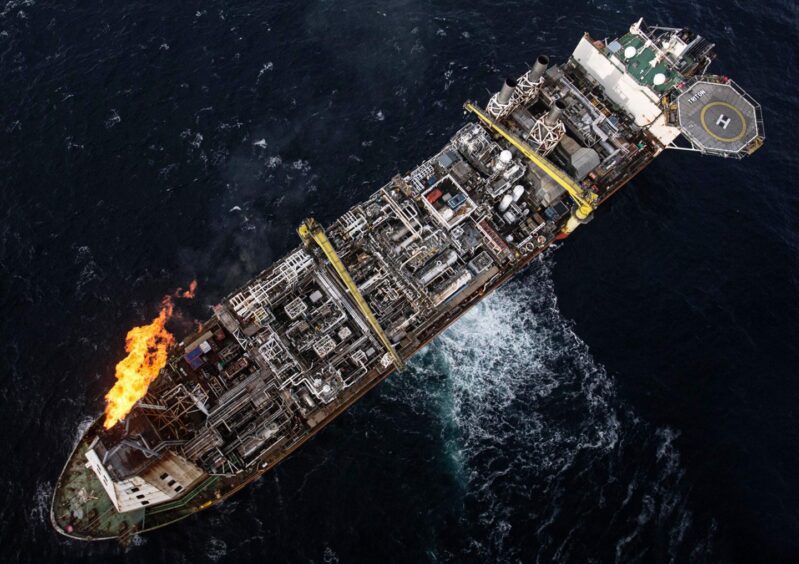
Dana Petroleum has been warned by the safety watchdog after it found employees were put at risk of exposure to legionella bacteria on its Triton FPSO.
The Health and Safety Executive (HSE) raised concerns over water management issues and noise exposure on the floating production storage and offloading (FPSO) vessel in the North Sea.
The regulator issued the operator with two improvement notices following a 17-20 May inspection onboard the FPSO, moored some 120 miles east of Aberdeen.
The first found that Dana had failed to ensure that the risk of employee exposure to “substances hazardous to health (namely legionella bacteria)” is either prevented or adequately controlled.
It reports that “no written scheme for controlling the risk to legionella bacteria exists for Triton FPSO” and that Dana “could not demonstrate” that its own prevention and control measures were replicated in the actual working practices onboard the facility.
The HSE inspector pointed to specific examples of failures including compliance gaps for the FPSO’s potable water bunkering hose, visual inspections of internal hot and cold water tanks that were not being undertaken annually as required, and a calorifier temperature control that was out of specification limits.
In addition, it found that Dana “failed to begin to undertake improvement actions recommended within the 2019 Legionella risk assessment,” though it did not suggest that the bacteria was found to be present onboard the vessel.
Legionella is a bacteria found naturally in freshwater environments, but can become a health risk if they are allowed to grow and spread in man-made water systems such as cooling towers, pools, potable water supplies and wastewater treatment plants.
Inhalation of the bacteria can lead to a severe form of pneumonia known as Legionnaires’ disease, as well as a milder flu-like illness called Pontiac fever.
A separate improvement notice found that efforts to reduce workers’ exposure to noise had not been undertaken.
Dana said it “regrets” the situation and is working towards full compliance with the notices.
The HSE notes that a “noise action plan” for Triton was created following studies undertaken between 2015-2019. This plan highlighted potential noise reduction measures for two main equipment packages, the flash gas and main export gas compressor.
The report finds that these reduction measures “had not been actioned and progressed since the creation of the noise action plan” and that “no arrangements were in place to progress these reduction measures further.”
While it acknowledged that personal hearing protectors were provided for appropriate work activity, the HSE said that by not undertaking these wider measures the operator had “failed” in ensuring that employees were exposed to as low a level of noise as possible.
A spokesperson for the company said: “Dana Petroleum can confirm that we received two improvement notices from the Health and Safety Executive. One in relation to the management of potable water quality on board our Triton FPSO; the other being related to noise reduction measures required in parts of the Triton process plant.
“The health, safety and welfare of all onboard personnel remains our absolute priority. We therefore regret this situation has occurred and are preparing an action plan to correct these issues and continue to ensure full compliance with relevant regulations.”
Dana has operated the Triton FPSO since 2012 and currently holds a 52% stake in the asset, alongside Tailwind Energy (46%) and Waldorf Production (2%).
It is located in block 21/30 and produces oil and gas from the Bittern, Clapham, Pict, Saxon, Guillemot Area subsea facilities.
The 244m vessel is normally crewed by around 70 staff, but has accommodation on board for up to 80 people.
In 2018 a similar warning notice was issued to Spirit Energy for risk prevention and control process failures at its Morecambe field.
